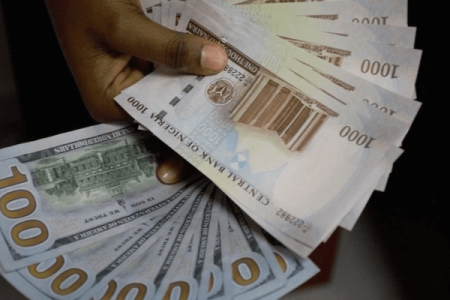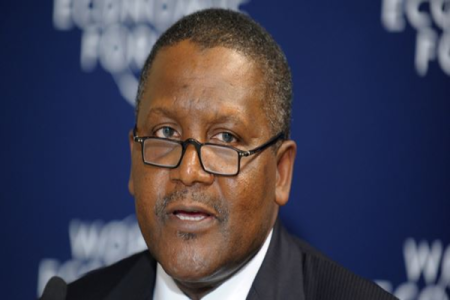
Explore Nigeria's economic landscape as the naira depreciates against the dollar, reaching N1,459.73. IMF's call for stability amidst high demand and scarcity.
Amidst a backdrop of economic turbulence, Nigeria's currency, the naira, continued its downward spiral against the US dollar, registering a further depreciation at the official foreign exchange market. The latest data from the Nigerian Autonomous Foreign Exchange Market (NAFEM), released by FMDQ Securities Exchange Limited, revealed a notable weakening of the naira, with the dollar reaching N1,459.73 compared to N1,421.06 the previous day.
The dwindling supply of the dollar, coupled with escalating demand from end-users, exacerbated the currency's decline. Dollar transactions between willing buyers and sellers plummeted by 48.78 percent, dropping to $84.38 million from the previous day's $164.74 million. Market analyses unveiled a fluctuating landscape, with the intraday high hitting N1,465, a stark contrast to the previous day's N1,440. Similarly, the intraday low saw a marginal depreciation of N1,351, down from N1,335.
In parallel markets, colloquially known as the black market, the naira maintained stability against the dollar at N1,440/$1. However, persistent dollar scarcity loomed over the market, posing challenges to stability.
Echoes of concern reverberated globally as the International Monetary Fund (IMF) directors weighed in on Nigeria's economic situation. Urging the Central Bank of Nigeria (CBN) to implement a robust Foreign Exchange intervention framework, the IMF emphasized the imperative of stabilizing the currency amidst ongoing challenges.
Acknowledging recent efforts to address foreign exchange market distortions, the IMF underscored the need for continuous improvement in market functionality. Highlighting the decline in gross international reserves in 2023 and the subsequent sharp depreciation of the naira post-unification of exchange windows, the IMF directors outlined a cautious optimism following monetary policy adjustments and renewed FX interventions.



![Today's Naira Rate [18-05-2024]: Today's Dollar to Naira Black Market Rate at N1511](/data/attachments/204/204071-8457c57119a478bc5717b11aa4a694ef.jpg)
